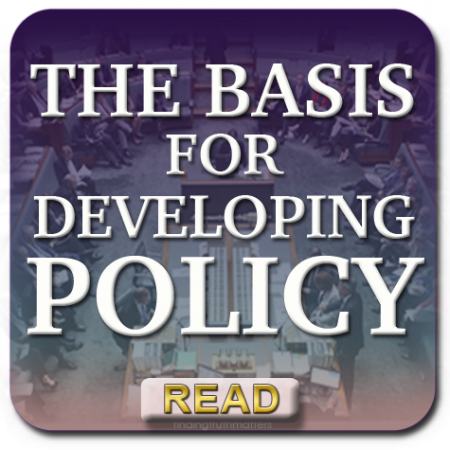
home > articles > Developing Reasonable Public Policy
DEVELOPING REASONABLE
PUBLIC POLICY
Legislators are charged with an office to formulate and review public policy as it potentially becomes legislation. They must consider arguments for and against each piece of potential legislation in order to discharge their office. Classically, there are six filters that must be passed in order for an idea to be considered ‘logical’. These are listed and briefly described below and followed by the three general categories of all legislation which should be used to determine public policy.
1. Distinguish the rhetoric from the reason.
‘Rhetoric’ sounds good. It employs emotive language designed to move a listener. It connects the speaker with their audience by using experiences common to us all.
Examples-
“It is my firm conviction that…”
“I find this proposal to be the most offensive and dangerous idea that I have ever heard…”
“To go ahead with this would hurt the feelings of a good many people…”
“We must do this!”
“The time for change is now! … The time for this idea has now come.”
“Even the President of the United States and the Prime Minister of England support this…”
None of the above examples convey a reason though. Distinguishing rhetoric from reason involves answering the why question. A reason may not be good, strong, or popular, but it may still be right.
2. Ground a moral decision.
Moral decisions determine what is right (“moral”) and what is wrong (“immoral”). As such, every legislative decision is a moral decision. The question isn’t whether legislators can legislate morality, the question is whose morality will they legislate? Natural Law Theory is the idea that just as there are certain physical laws which govern the universe (Gravity, Decay Rates, Newtonian, Speed of Light) there are also certain appreciable moral laws which govern human conduct. Professor J. Budziszewski (Professor of Government & Philosophy, University of Austen Texas) points out in his book, What We Can’t Not Know, that these Natural Laws are readily identifiable, widely acknowledged, and timeless. The Natural Law is frequently encoded by most religions into their ethical frameworks and is often confused with “religion”. Metaphorically, it serves as the ‘horizon’ for an aircraft pilot. Remove sight of the ‘horizon’ and a pilot can not always be certain which way is up and which way is down. For those who claim that morality is relative, we are left wondering, relative to what? Morality needs to grounded beyond the whims of public opinion, fashion, or a legislator’s personal preference.
3. Establish the connection between an idea, a premise, and a conclusion.
A logical reason is grounded in an idea which has a premise that leads to a conclusion which follows. Some ideas masquerade as logical reasons but have a faulty or an unrelated conclusion. An example of faulty logical reasoning-
IDEA: This group of people should be granted this privilege.
PREMISE: Not giving everyone the same privilege is discrimination.
CONCLUSION: Therefore, everyone should be given this privilege.
Analysis–
The idea, “This group of people should be granted this privilege” does not answer the why question. Why should this people be granted this privilege? Apart from being inadequate, this idea is also faulty because it confuses a “privilege” with a “right”. A privilege is by its very nature only granted to some. It is a privilege for someone from outside of Australia to be granted entrance to Australia. It is a privilege for any immigrant to be granted Australian citizenship – not a right.
The premise, “Not giving everyone the same privilege is discrimination” is a faulty premise for two immediate reasons. Firstly, a privilege is only a privilege if it discriminates. It is a privilege to be awarded a Knighthood from the Queen – but it necessarily results in most people not being granted a Knighthood. Secondly, the term discrimination is misapplied in this instance. Discrimination may be reasonable and fair. When it is, it is generally referred to as differentiating, or, distinguishing. Discrimination is only unreasonable and unfair when it can be demonstrated that a Natural or deserved/inherent right has been violated. This might be the case when one suitably qualified employee among several is not considered for a promotion because of their colour of their skin.
The Conclusion, does not follow on from either the idea or the premise. Many policy agendas have an unreasoned idea, a faulty premise, and a conclusion that is without logical support.
Example-
IDEA: Not giving coloured people or women the vote was wrong.
PREMISE: Not allowing Same-Sex Marriage for homosexuals is like not giving coloured people or women the vote.
CONCLUSION: Coloured people and women now have the vote, therefore same-sex couples should be allowed to marry.
This syllogism is quite illogical because it confuses something that is intrinsic to something, with something that is not intrinsic with something. For example, “Voting is intrinsic to democracy.”
4. Distinguish the who from the what.
Some ideas are rejected not because of the idea, but because of who proposed the idea. Rejection of a person’s idea is often done in the form of ridicule. Name-calling and labelling are tell-tale signs that there has been a failure to distinguish between what an argument is, and who is making the argument. Rather than dismissing an argument as “the rantings of an extreme right-wing / left-wing fool”, the idea’s logical validity should itself be what’s considered. Rejecting an idea because of its genesis rather than its merits is referred to as the Genetic Fallacy.
5. Discern fact from opinion.
A fact is verifiable and usually demonstrable. A “fact” is the appropriate response to the question- How do you know this? When a person’s response does not adequately answer this question it may be that they have stated their opinion about a matter rather than given a fact to substantiate their idea.
Example-
“Our society is ready for this social change.”
“One day we will colonise Mars.”
“I believe people are born homosexual.”
“If two people really love each other their relationship is equal to any other.”
“The unborn are not fully human.”
“You cannot impose your views on another.”
The above statements could all be factual if they have a supporting set of facts to undergird them. Facts must be verifiable, non-contradictory, and demonstrable.
6. Avoid identifying motive.
Some people reject an idea because they feel that the motive behind the idea is disagreeable. The problem here is that it is next to impossible to fully know another person’s motive for their idea. To assume knowledge of another person’s motive is often considered arrogant and reveals a shallow ability to respond to the idea itself.
Examples-
“You think this because…”
“I know why you want this…”
“You are hateful…”
“You promote this idea because…”
But these six filters are not the exclusive responsibility of legislators. Whenever we hear a politician or an activist promoting an idea, we should filter our response to this idea at least through these six filters. By doing this we may more readily recognise an illogical idea and treat it appropriately. For example, when a politician says, “This is the right thing to do”, he rarely demonstrates why it is the right thing to do – other than with a cliché that satisfies those not acquainted with thinking more deeply. This contrasts with, “This is the right thing to do because we can demonstrate that it will save lives” was the reasoning behind the legislation to make seat-belts in cars compulsory, and this simple reasoning was validated and the legislation passed. “They did not vote for this legislation because these politicians are out-of-touch with the rest of society” is not a logical idea. It violates the principle of Avoid Identifying Motive. “Because of a small group of white, middle-aged men, this legislation did not get up!” is not a logical idea because it commits the Genetic Fallacy of confusing the who with the what.
THE THREE CATEGORIES OF PUBLIC POLICY CONSIDERED FOR LEGISLATION
If a public policy idea passes through these six filters of reasonableness, it then must be determined into of these three general categories it falls.
1. Promotion
That which can be demonstrated is in the public benefit should be promoted and invoke certain privileges. For example, it can be easily demonstrated that children always fair best when raised by their married biological parents in a low-conflict loving home. There is great benefit to a society in having well-reared children. Therefore, biological married parents should be granted certain privileges in legislation to promote this.
2. Permission
Some legislation will permit some things which although not in a society’s beneficial welfare would be too cumbersome to either regulate or prevent. Various levels of legislative deterrents may be used instead, such as Taxation laws. For example, smoking. It is clearly not in the public benefit. Prohibiting it now would be extremely costly and impractical to enforce. Thus, most Australian States have legislated for smoking to be permitted but highly regulated.
Some relationships are not morally acceptable but do not warrant legislative prohibition – but neither should they be privileged.
3. Prohibition
It is necessary for legislators to enact some laws which prohibit certain activities. This is necessary even when enforcement of these laws is (at times) impractical. For example, murder. Murder is clearly not in the public benefit. Laws prohibiting murder serve to restrain this immoral behaviour to some extent and constrain civility within a society. Yet, laws prohibiting murder do not prevent some immoral people from still committing murder. But murder is so heinous that despite the difficulties with enforcing the laws against it, it is still enforced. There are some relationships that are so immoral that the State legislates to prohibit them because the welfare of those involved is harmed. One example of this would be a paedophiliac relationship where young children were being sexually abused. The State has legislated to intervene in such instances and remove the child involved and charge the perpetrator with criminal charges.
After legislators have evaluated the reasonableness of a policy idea for its logical rigour and found it worthing of enacting, they must determine it should be promote, permit, or prohibit certain behaviour.
Dr. Andrew Corbett
28th September 2012
www.findingtruthmatters.org
-
Sale!

5 Things We Need To Do To Break Our Church’s 200 Barrier, Premium Audio
Original price was: $1.75.$0.95Current price is: $0.95. -
Sale!

A Morning With Izaak Walton – The Compleat Man, Premium Audio
Original price was: $1.75.$1.25Current price is: $1.25. -
Sale!
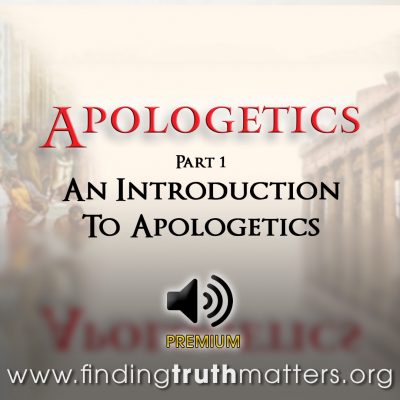
Apologetics Part 1 – Introduction To Apologetics, Premium Audio
Original price was: $1.75.$0.95Current price is: $0.95. -
Sale!
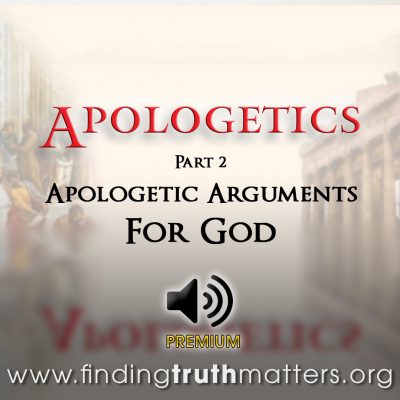
Apologetics Part 2 – The Apologetic Arguments For God, Premium Audio
Original price was: $1.75.$0.95Current price is: $0.95. -
Sale!

Apologetics Part 3 – The Apologetic Arguments For The Bible, Premium Audio
Original price was: $1.75.$0.95Current price is: $0.95. -
Sale!
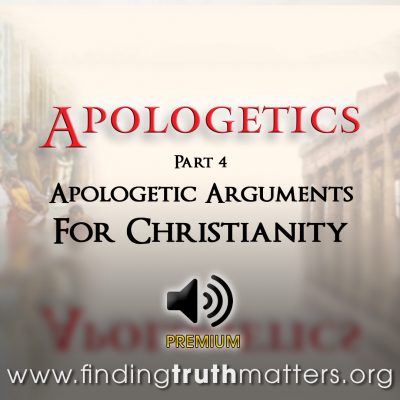
Apologetics Part 4 – The Apologetic Arguments For Christianity, Premium Audio
Original price was: $1.75.$0.95Current price is: $0.95. -
Sale!
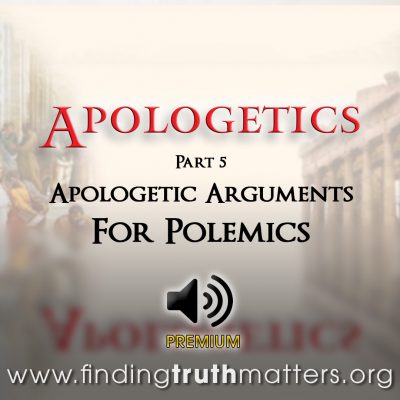
Apologetics Part 5 – The Apologetic Arguments For Polemics, Premium Audio
Original price was: $1.75.$0.95Current price is: $0.95. -
Sale!

Being A Candlestick Church, Premium Audio
Original price was: $1.75.$0.95Current price is: $0.95.



















